#Juana I de Castilla
Explore tagged Tumblr posts
Text
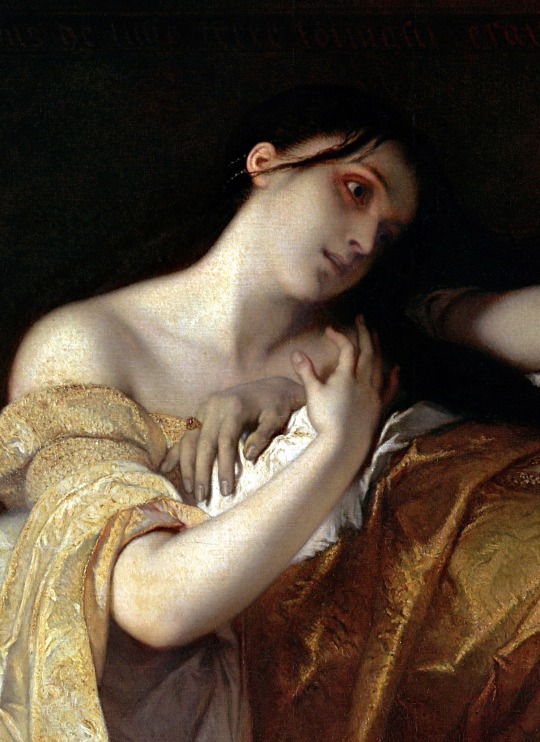
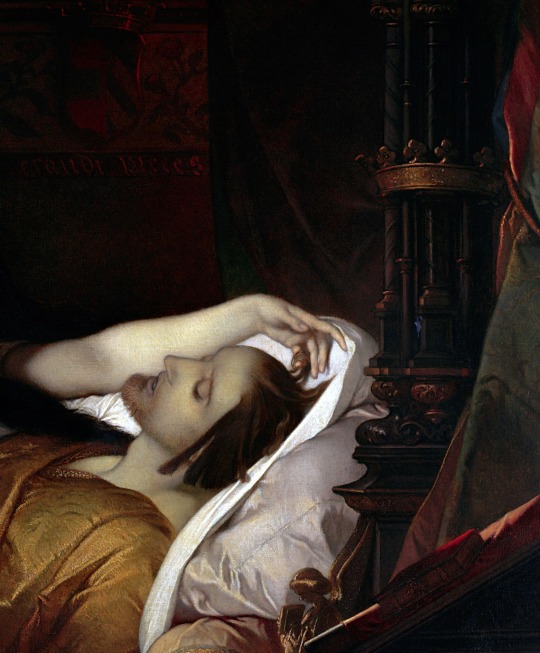
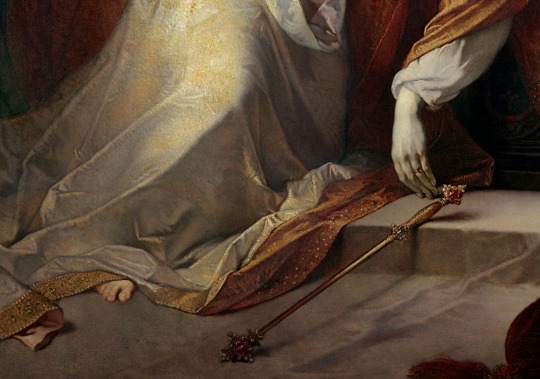
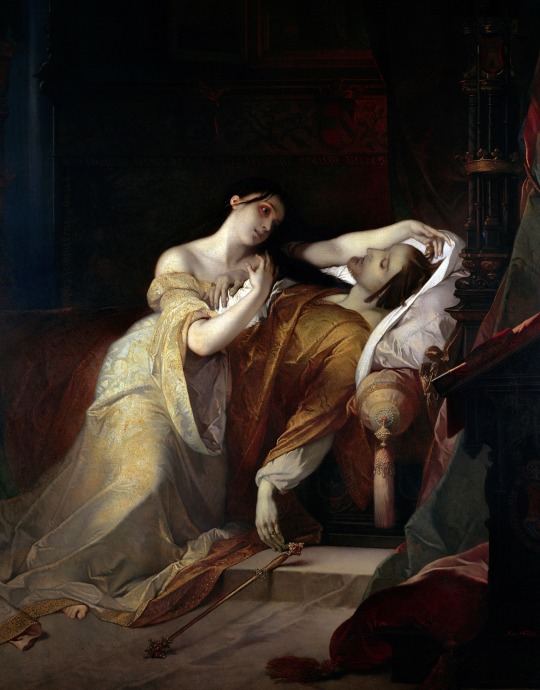
Joanna the Mad with Philip I the Handsome (1856) Oil on canvas. — Louis Gallait (Belgian, 1810-1887)
#Louis Gallait#art#paintings#classical art#oil painting#art details#hands#fabric#interior#room#bedroom#sickness#agony#crown#classic art#oil on canvas#art classics#Juana I de Castilla#juana la loca#art history#romanticism
1K notes
·
View notes
Text
Happy birthday, Your Majesties! ✧.

᭼ ᭼ ─ ─ ─ ᭼ ᭼
43 notes
·
View notes
Text
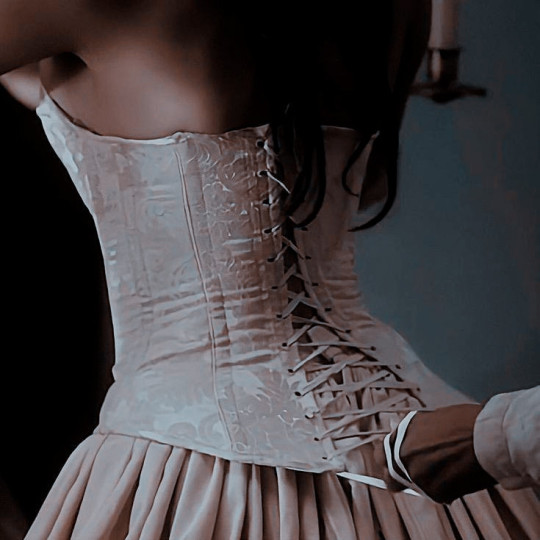




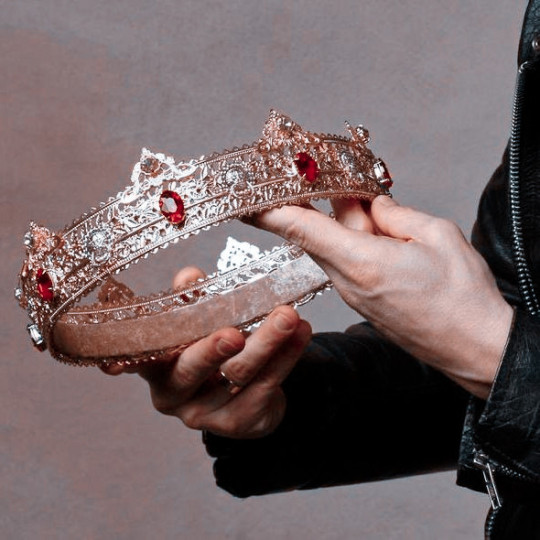


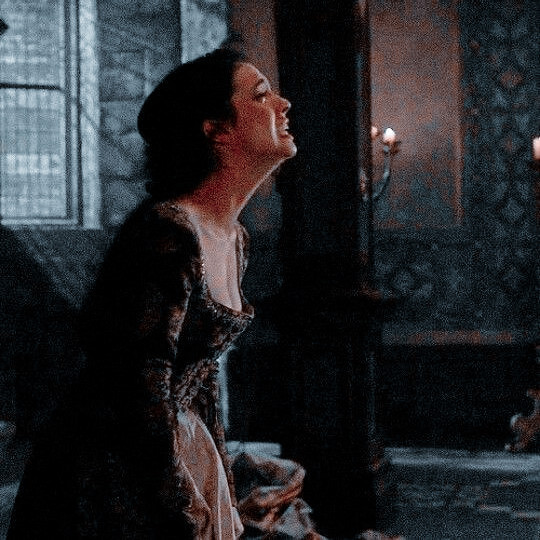
– juana i de trastámara ; infanta of spain, duchess consort of burgundy, queen of castile, aragon, valencia, mallorca, navarre, naples, sicily, sardinia and countess of barcelona was born on this day, 6th of november of 1479
#juana i de castilla#joanna of castile#juana the mad#house of trastamara#spanish history#on this day in history#weloveperiddrama#women in history#perioddramaedit#isabel tve#la corona partida#irene escolar#myedit*
75 notes
·
View notes
Text

Queen Joanna of Castile, Meister der Magdalenenlegende, 1495-96
--------
La reina Juana de Castilla, Meister der Magdalenenlegende, 1495-96
Kunsthistorisches Museum Viena
#Juana I de Castilla#Joanna of Castile#painting#15th century#art#artwork#kunsthistorisches museum#wien#germany#arte#reina
11 notes
·
View notes
Text
Joanna I & Catherine of Aragon || HURRICANE
youtube
#juana de castilla#joanna of castile#juana i of castile#juana i de castilla#katherine of aragon#catherine of aragon#catalina de aragon#Youtube
13 notes
·
View notes
Note
What are your thoughts on Queen Juana I? Over the centuries, so many images of her have been created by writers/historians: the madwoman archetype, the woman who didn't want to rule, the sex-crazed monarch, the brave girl who tried to exercise power and was opressed by the men of her family... Who do you think is "the real Juana"? What were in your opinion her best qualities... and her worst flaws amd failings? Which historians do you think "get it right" about Juana? Which ones "get it wrong"? THX xoxo
Idk really. Everyone has their own opinion and every opinion is biased because there’s no way of knowing what the real Juana was like. I have my own subjective vision, but I have no idea whether it’s true or not. I think she was very talented and intelligent, but emotionally unstable (might have been due to the treatment she received from her husband and then from her father and son or due to hormonal imbalance) and wouldn’t have made a good monarch in such state. Her youngest sister definitely would have, can’t tell anything about her other siblings as they died young. I also think she was very passionate but sex-crazed? I don’t know… I don’t see her either as crazy or as ahead of her time, she was a woman of her time, but very unfortunate despite and/or because of her inheritance.
5 notes
·
View notes
Text
Joanna I & Catherine of Aragon || HURRICANE
youtube
#videos#katherine of aragon#catalina de aragon#catherine of aragon#joanna i of castile#juana I de castilla#Youtube
3 notes
·
View notes
Photo
Love is all

@Neoprusiano Reina Juana I de Castilla, de Aragón, de Navarra, de Nápoles y de Sicilia Regina Ioanna I Castellae, Aragoniae, Navarrae, Neapolis et Siciliae Königin Johanna I. von Kastilien, von Aragón, von Navarra, von Neapel und von Sizilien Queen Joanna I of Castile, of Aragon, of Navarre, of Naples and of Sicily Reine Jeanne I de Castille, d'Aragon, de Navarre, de Naples et de Sicile
Rey Felipe I de Castilla y Duque de Borgoña Rex Philippus I Castellae et Dux Burgundiae König Philipp I. von Kastilien und Herzog von Burgund King Philip I of Castile and Duke of Burgundy Roi Philippe I de Castille et Duc de Bourgogne
Meester van Affligem
#Rey#King#Reina#Queen#Imperio Español#Spanish Empire#España#Spain#Juana I de Castilla#Felipe I de Castilla#Meester van Affligem
625 notes
·
View notes
Text

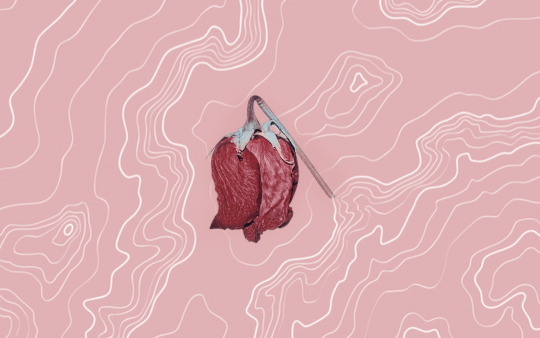


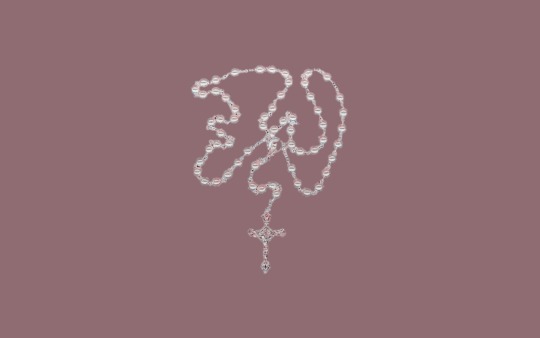
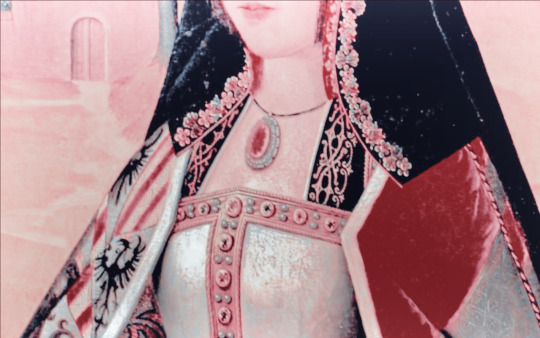


Isabel and Juana of Castile + quote
Happy birthday @latristereina !
Isabel had good cause for being upset. Such was “the disposition of the Princess” as the physicians described it, “that not only should it pain those who see her often and love her greatly, but also anyone at all, even strangers, because she sleeps badly, eats little and at times nothing, and she is very sad and thin. Sometimes she does not wish to talk and appears as though in a trance; her infirmity progresses greatly.” It was customary, they explained, to treat Juana’s infirmity through love, entreaty, or fear; but the princess had proven unreceptive to entreaty, and even “a little force” affected her so adversely that it was a great pity to attempt it and no one wanted to try, so that, beyond the queen’s customary immense labors and concerns, this weight of caring for her daughter fell upon her. It has been conjectured that Isabel’s illness could have been cancer, endocarditis—infection of the heart valve—chronic dropsy, or several of them combined. By the following June she had a visible tumor, although it is not known where or of what sort. In August she took Juana to Segovia, which she had seemingly avoided for years, telling her it was a step toward the north coast and her departure for Flanders. There Isabel continued to try with little success to get her to turn her mind to affairs of state. Juana showed little interest in government and in her child, and a good deal of disregard for religious matters of any sort, and for public opinion as well. The princess appeared to disdain much of what Isabel valued, and even to represent the antithesis of the very qualities her mother valued most highly. Even so, Juana was her designated successor, and Isabel was determined to keep her in Spain and do her best to train her to be its queen. So the arguments against Juana’s departure were patiently repeated: the season, the sea, the French, that Philip should be safe in Ghent before she traveled, and did she not want to see her father before she left? The hope remained that Juana would stay and Charles join her, so that Isabel might have him educated in Spain’s customs and come to prefer its people. And with Juana and Charles there and Philip not, should Isabel die, Fernando, still king of Aragón, could surely manage to guide their daughter in governing Castile. It was November. A treaty with France—arranged by the queen of France, Anne of Brittany, and Margaret of Austria—had been signed, and an envoy arrived from Philip requesting that Juana return to Flanders. Isabel, playing for time, responded that the princess, although better, was not well, that relations with France were still such that it was not safe for her to travel by land or, now that it was winter, by sea, that she had better wait until spring, and that “following her frame of mind and la pasión she has” that Juana should not be where there was no one who could quiet and restrain her for it might be dangerous for her. The implication was that Juana was emotionally out of control. Exactly what was meant by “restrain” we do not know.
-Peggy K. Liss, Isabel the Queen
#isabel de castilla#isabella of castile#juana de castilla#joanna of castile#joanna i#Isabel tve#juana la loca#mad love#michelle jenner#pilar lopez de ayala#period drama#perioddramaedit#historical women#my edits#graphic edit#filter by crownedfilters on ig
117 notes
·
View notes
Text
Thread about Joanna of Castile: Part 8: “The Tragic Departure: Philip's Refusal and Juana's Suffering













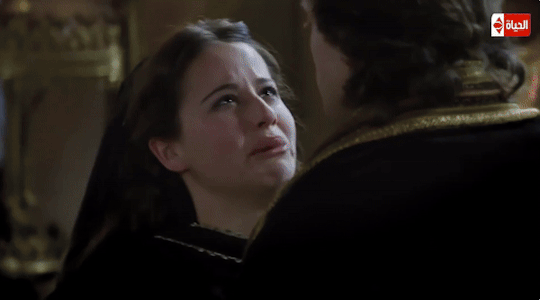


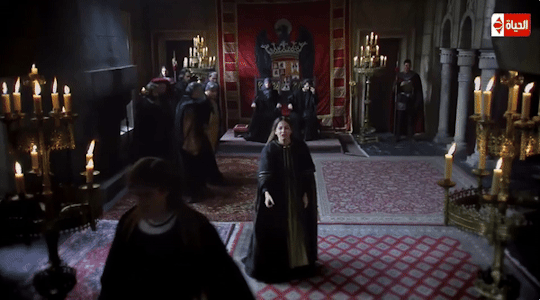
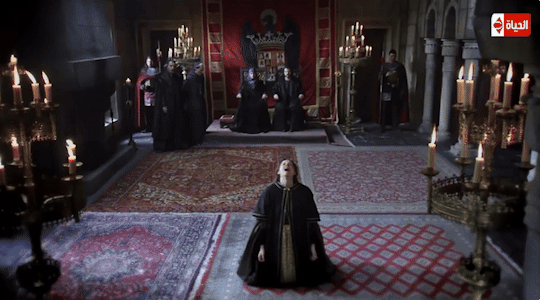


Philips' refusal to stay longer shocked both monarchs and procurators. Castilian procurators warned that if he crossed France during wartime, he would be considered a traitor, exposing himself to the mercy of his enemies and endangering Juana's life. This would not only undermine the monarchs, but also the interests and honour of all Spain, and would cause great agitation. The Aragonese procurators appealed to Philip in the same way. Although the monarchs persuaded Juana to remain for the birth of their fourth child, Philip left Madrid on 19 December.
Martire was dismissive of Juana, who showed no sign of 'royalty or courage'. Burton, perhaps familiar with Martire’s letters, later summarised the situation in his opus on melancholy.
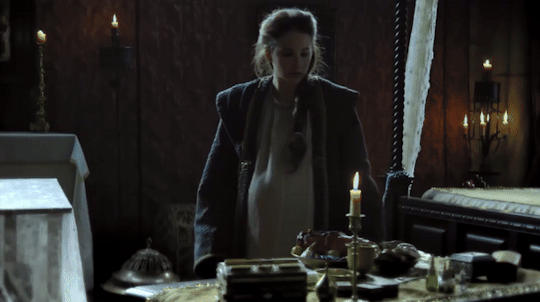
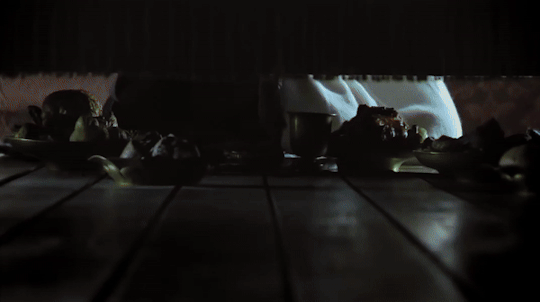
Juana was:
“So impatient and melancholy upon [Philip’s] departure, that she would scarce eat her meat, or converse with any man; and though she were with child, the season of the year terrible, the wind against her, in all haste would to sea after him.”
Historians have also attributed this distressing episode to Juana's personal obsession with Philip, underestimating the broader political aspect. As with all female royals, Juana was born into a highly political setting. Even though she wasn't power-hungry, honour and reputation mattered to her. She was not only affected by her separation from her husband, but also by his conduct towards her. As a result, Juana, who wore violet for her reunion with Isabel in May, bid Philip farewells in December.
Almost certainly, this signalled more than personal grief. She was heir to the many realms of Castile and Aragon and beyond personal grief and dishonour, her mourning signalled a political calamity.
The idea that Philip had run from his commitments as soon as the oath-taking was over made people doubt the succession, which made it very unlikely that the Spanish kingdoms could be ruled by princes who were also archdukes of Austria and dukes of Burgundy. This left Juana with a difficult decision, although not necessarily a resolute one:
To abandon her husband and children and remain in Castile to confront an uncertain future; or, in the event of Isabel's demise, to allow Fernando to continue to lead until Charles reached adulthood.
Considering the magnitude of negative remarks regarding Juana's conduct, it is noteworthy to recall that throughout the spring, she remained faithful to her royal duties. She made various acts of religious patronage, including visits that January to the Clarisan monastery of Rejas. Another sign that she supported the Franciscan order comes from a note written by a man named Francisco Segarra, who was hired by the kings to inspect monasteries in Aragon in 1493. Segarra thanks Juana for an act of charity and for her letters, in which she told him not to hesitate to ask her for more help. He hopes to be able to visit her soon.




On 10 April, she brought comfort to her parents with the birth, at Alcalá de Henares, of a second son, Ferdinand, whom she agreed to leave in Castile. Sandoval describes Juana’s pleasure at the birth and the (fattering) sermon about her that Villaescusa preached at the baptism. Zurita refers to the:
“Great respect that the princess always had for the queen.
Sources: Fleming, G. B. (2018). Juana I: Legitimacy and Conflict in Sixteenth-Century Castile (1st ed. 2018 edition). Palgrave Macmillan.
Fox, J. (2012). Sister Queens: The Noble, Tragic Lives of Katherine of Aragon and Juana, Queen of Castile. Ballantine Books.
Gómez, M. A., Juan-Navarro, S., & Zatlin, P. (2008). Juana of Castile: History and Myth of the Mad Queen. Associated University Presse.
#joanna of castile#juana i of castile#philip the handsome#juana la loca#isabel#irene escolar#Raúl Mérida#Philippe le Beau#Felipe I de Castilla#Felipe el Hermoso#Philipp I. von Kastilien#Filips I van Castilië#Johanna van Castilië#Jeanne la Folle#european history#johanna van castilie#catherine of aragon
10 notes
·
View notes
Text
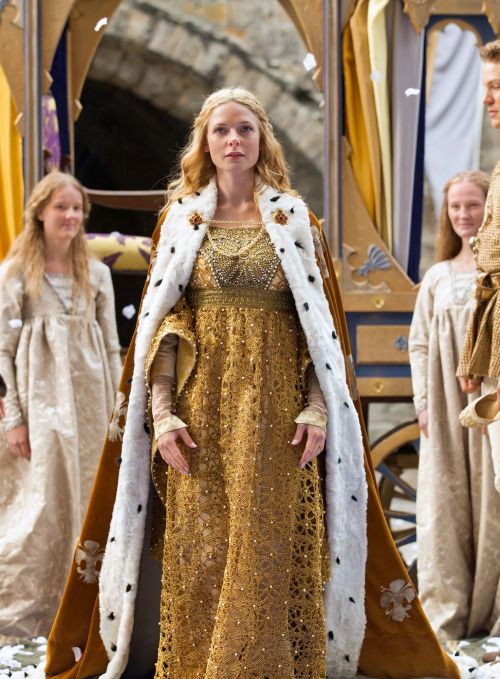
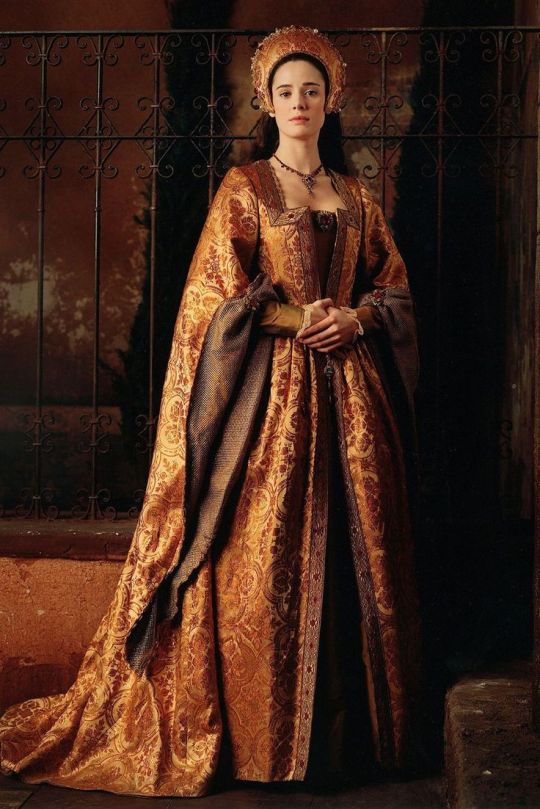
Period drama's dresses tournament: Golden-yellow dresses Round 1- Group B: Elizabeth Woodville, The white queen (gifset) vs Joanna of Castile, Juana la loca (gifset)
#period drama dresses tournament#tournament poll#tumblr tournament#polls#fashion poll#elizabeth woodville#the white queen#joanna of castile#juana de castilla#joanna i#juana la loca#mad love#round 1
12 notes
·
View notes
Text



Queen Joanna the Mad, c.1858 - oil on canvas ― Gabriel Maureta Aracil (Spanish, 1832-1912)
#Gabriel Maureta Aracil#art#paintings#classical art#oil painting#art details#classic art#oil on canvas#Gabriel Maureta y Aracil#La reina Doña Juana la Loca#Juana I de Castilla#black dress#dark aesthetic#art history#realism#interior#funeral
783 notes
·
View notes
Text
Juana la Loca, de Francisco Pradilla
Juana la Loca, Francisco Pradilla, Siglo XIX: La joven reina centra la composición dominando poderosamente la escena, erguida en pie delante de su sencillo asiento de tijera cubierto por un almohadón. Viste traje de grueso terciopelo negro, ocultos sus cabellos con tocas, como corresponde a su condición de viuda. Con la mirada completamente enajenada, el perfil de su vientre acusa su avanzada…

View On WordPress
#Francisco Pradilla#Pintura#Pintura historicista#Reina Juana I "la Loca" de Castilla#Siglo XIX
1 note
·
View note
Note
do you have any fun facts about Juana de Castilla
I hear she broke her foot when she kicked that orc helmet.
120 notes
·
View notes
Text

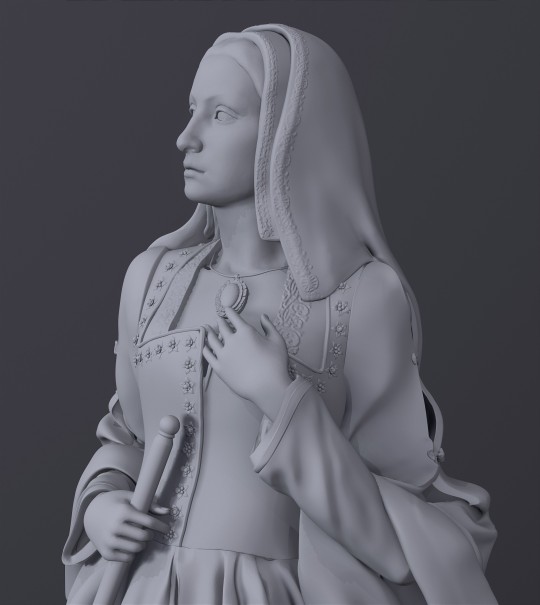

Statue of Queen Juana I of Castile on the Paseo de los Reyes or Paseo de las Estatuas at El Retiro Park in Madrid.
14 notes
·
View notes
Note
You once said that at your trial, Juana was not crazy (I agree), but do you think she was fit (mentally/emotionally) to govern? I think she had trauma due to the abuse she suffered and I think her husband and father took advantage of the situation for their benefit but I find it hard to believe that once Philip died and with her father away in Italy for months, she couldn't have done more to secure her power and throne.
I think she wasn’t fit to govern.
6 notes
·
View notes